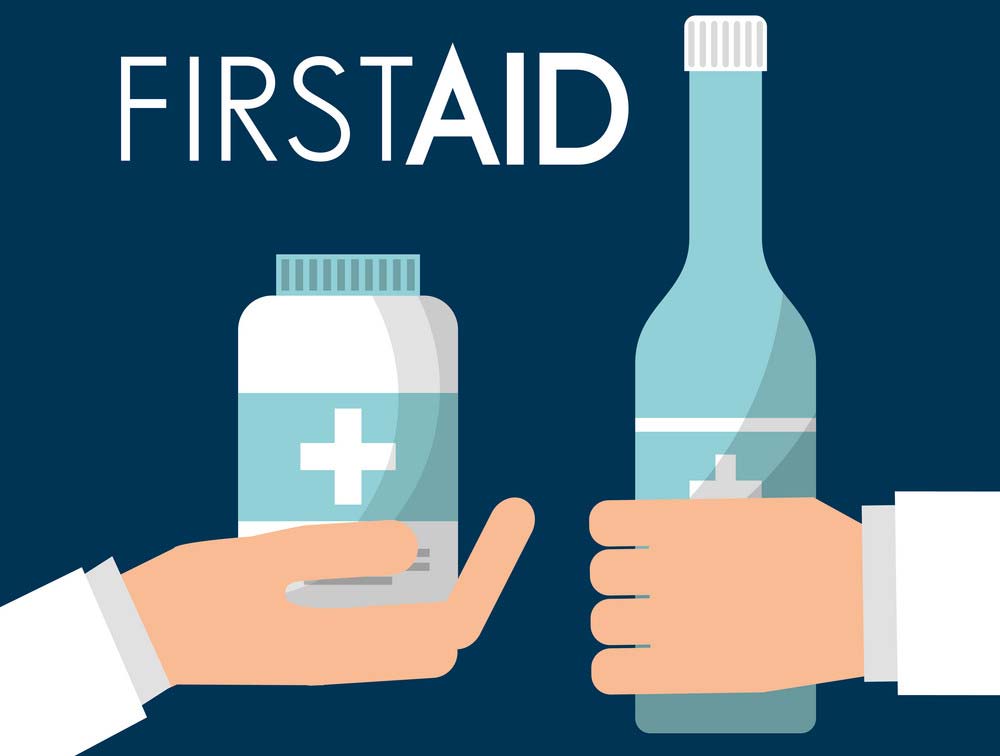Alcohol Use Disorder vs Alcohol Dependence Disorder?
Alcohol dependence disorder is also termed alcoholism and alcohol addiction. It is characterized by a condition where a person is unable to stop drinking even after they have experienced negative consequences. It is a chronic condition that affects a person’s physical health, behavior, and interactions with others.
An individual is addicted to alcohol when they cannot control their desire for alcohol and they keep drinking alcohol in large amounts. When their alcohol intake reaches the intoxication level and they engage in this behavior frequently, it results in an alcohol use disorder.
Overview of ADD
Alcohol addiction develops when someone continues drinking despite experiencing negative consequences on their health, mental well-being, or relationships. As dependence grows, they may find it extremely difficult to cut back due to severe physical withdrawal symptoms.

Symptoms of AUD & ADD
These conditions can be characterized by the following signs and symptoms:
- Inability to limit the intake of alcohol.
- Efforts to stop or limit the use of alcohol result in failed attempts.
- The individual keeps consuming or recovering from alcohol.
- Desire to drink alcohol increases day by day.
- Inability to fulfill job responsibilities.
- In students, this disorder results in poor academic performance.
- Limited social life.
- Becoming physically tolerant to the amount of alcohol used and need to consume more to reach the desired effect.
- Depression
Different Types:
There are two types of alcohol use disorder:
Type A:
- Late-onset of alcohol use.
- Chances are low of being dependent on alcohol.
- Feeling guilty and ashamed about drinking.
- The presence of health issues related to alcohol use is less.
Type B:
- Early-onset of alcohol use.
- High risk of severe dependence.
- No feeling of guilt and shame for the use of alcohol.
- Alcohol use causes severe health issues.
Committed to helping
people who want to help themselves
Causes of Alcohol Use Disorder?
- Family History: Alcohol use disorder is highly associated with a family history of alcoholism.
- Mental Health disorders: Sometimes alcohol intake can help to reduce the symptoms of anxiety and depression temporarily. This temporary relief leads the person to drink more often.
- Childhood trauma: One of the most important causes of alcohol abuse is severe trauma.
- Pleasure: Many people drink socially which can provoke dependence on it.
Risk factors:
- Community: When and how much consumption of alcohol in a person’s social circle or community affects the amount of alcohol intake.
- Availability: Alcohol is legal and easily available.
- Gender: Research suggests that alcoholism is higher in males compared to females.
- Continuous drinking overtime: If someone keeps drinking alcohol steadily over time, there is a higher risk of becoming dependent on alcohol.
- Early-onset of alcohol use: Consuming alcohol at a young age increases the chances of developing alcohol dependence disorder.
Complications:
Alcohol abuse can severely affect mental and physical health. The following are the common complications seen with alcohol abuse:
- Destruction of internal organs such as the liver, heart, and brain. Some of the ways organs become damaged are the development of liver disease, gastrointestinal bleeding, esophageal cancer, stroke, hypertension, and cardiac arrhythmias.
- Excessive alcohol use causes many neurological disorders.
Delirium Tremors/Withdrawal syndrome:
When a heavy alcohol user tries to stop drinking the body goes into physical withdrawal. They develop increased heartbeat, excessive sweating, tremors, irritability, mood swings, seizures, dementia, and sleep problems.
Diagnosis of Alcohol Use Disorder and Alcohol Dependence Disorder:
Diagnosis must be made using a proper physical examination to find out to what extent alcohol abuse has affected the person’s organs and overall physical well-being. A psychological examination is also necessary for the diagnosis.
- The Diagnostic and statistical manual of mental disorders, DSM-5, is often used in conjunction with physical and psychological examination.
Prevention:
- Alcohol abusers must restrict the intake of alcohol.
- Avoid alcohol use after experiencing health or social problems.
- Avoid family or friends who encourage drinking.
When to see a doctor for Alcohol Dependence Disorder?
- If drinking alcohol more than intended
- All the efforts to cut down alcohol usage fails.
- Drinking in excess and is interfering with daily functioning.
- If depression or anxiety is present.
Treatment
- Therapy:
Counseling is important with alcohol use disorder and alcohol dependence disorder. If the person is sincerely motivated to stop, therapy will help to change thinking patterns and triggers that promote alcohol use.

- Withdrawal of alcohol:
Withdrawal must be medically managed to prevent seizures and minimize withdrawal symptoms.
- Medications:
Oral and injected medications such as disulfiram and Vivitrol may be used by health professionals to help avoid using alcohol. These medications may not directly cure the disorder but they can help with coping with it.
- Motivation and Support:
The person must be motivated to stop or no therapeutic or family intervention will work.
